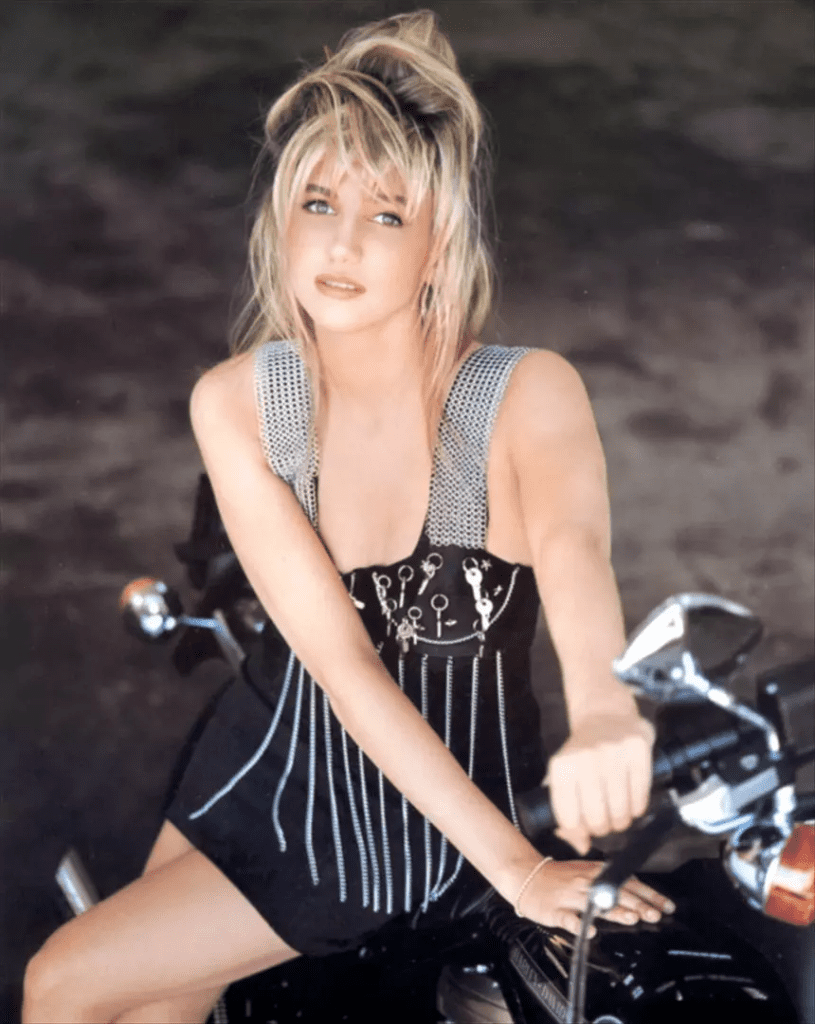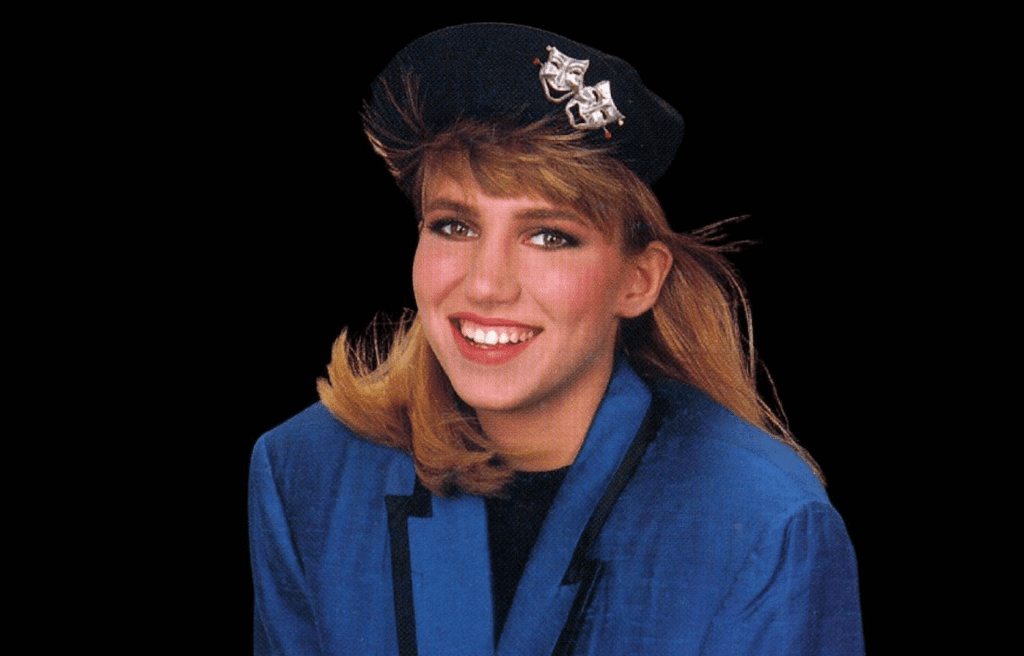
Debbie Gibson, an icon of the 1980s pop music scene, has long held her place in the pantheon of teenage pop stars who dominated the airwaves during that era. Known for her catchy tunes, energetic performances, and impressive songwriting skills, Gibson’s career has spanned over three decades. Her early success as a teen sensation, followed by her evolution into a respected musician, actress, and producer, solidifies her legacy in the entertainment industry. In this comprehensive biography, we delve into Debbie Gibson’s life, career highlights, and what she is doing in the present.
Deborah Ann Gibson, better known as Debbie Gibson, was born on August 31, 1970, in Brooklyn, New York. Raised in Merrick, Long Island, she was the third of four daughters in a close-knit family. From a young age, it was clear that Debbie had a remarkable talent for music. She began studying piano at the age of five, and by the time she was six, she had already written her first song. Music became her passion, and she spent countless hours practicing and honing her craft.

At the age of eight, Debbie began studying with noted voice coach and pianist Morton Estrin, further developing her musical abilities. Her parents were highly supportive of her talents, encouraging her to pursue her dreams. By the time she was a teenager, Debbie was composing and recording her original songs, demonstrating an advanced understanding of melody, harmony, and songwriting that far surpassed her years.
Debbie Gibson’s big break came in 1986 when, at the age of 16, she signed a recording contract with Atlantic Records. Her debut album, Out of the Blue (1987), catapulted her to stardom. The album, which was written, performed, and produced by Debbie herself, was a critical and commercial success. It spawned several hit singles, including “Only in My Dreams”, “Shake Your Love”, and the ballad “Foolish Beat”, which made history when it reached No. 1 on the Billboard Hot 100 chart. With that, Debbie became the youngest female artist to write, produce, and perform a No. 1 single, a record she still holds today.
The success of Out of the Blue established Debbie Gibson as one of the premier teen pop idols of the 1980s. Her infectious melodies, heartfelt lyrics, and youthful charisma resonated with audiences worldwide. The album went triple platinum, and Debbie became a household name, appearing on magazine covers, television shows, and performing to sold-out crowds.
In 1989, Debbie released her second studio album, Electric Youth, which further cemented her status as a global superstar. The album’s lead single, “Lost in Your Eyes”, became one of her signature songs, reaching No. 1 on the Billboard Hot 100 and solidifying her place in pop history. Electric Youth topped the Billboard 200 album chart for five consecutive weeks and went double platinum, making Debbie one of the most successful artists of the late 1980s.
The Electric Youth album wasn’t just a commercial triumph—it also showcased Debbie’s growth as an artist. She took on even greater control of her music, expanding her songwriting and production capabilities. The title track, “Electric Youth”, became an anthem for a generation, symbolizing the energy and optimism of youth in the 1980s.

At the height of her fame, Debbie embarked on an international tour, performing in packed arenas across the globe. Her performances were marked by her dynamic stage presence, impressive vocal abilities, and the infectious energy that captivated fans of all ages.
As the 1990s began, the music landscape was rapidly changing, with grunge and alternative rock taking center stage. Debbie Gibson, now entering her twenties, faced the challenge of transitioning from a teen pop star to a more mature artist. In 1990, she released her third studio album, Anything Is Possible, which reflected her desire to grow as an artist. The album featured a more sophisticated sound, incorporating elements of rock and R&B alongside her signature pop melodies.
While Anything Is Possible did not achieve the same level of commercial success as her previous albums, it showcased Debbie’s versatility as a musician. She co-wrote and co-produced the album, continuing to demonstrate her commitment to creative control over her music.

The 1990s also saw Debbie branching out into acting. She made her Broadway debut in 1992, starring as Eponine in Les Misérables, a role that showcased her impressive vocal range and acting abilities. This marked the beginning of a successful theater career, with Debbie going on to star in other major productions such as Grease, Beauty and the Beast, and Chicago. Her work on stage earned her critical acclaim and further solidified her status as a multifaceted performer.
Like many artists who achieved massive fame at a young age, Debbie Gibson faced her share of challenges as she transitioned into adulthood. The pressures of fame, along with the constantly evolving music industry, tested her resilience. However, Debbie continued to create music throughout the 1990s and early 2000s, releasing several albums independently.
During this time, she also became an advocate for various charitable causes, using her platform to raise awareness about issues such as mental health and the arts. Her dedication to giving back demonstrated her commitment to making a positive impact beyond the entertainment industry.

In the 2010s, Debbie faced a personal health challenge when she was diagnosed with Lyme disease. The illness caused her to step back from her career temporarily as she focused on recovery. Despite the difficult journey, Debbie remained open about her struggles, using her experience to inspire others facing similar health battles.
In recent years, Debbie Gibson has experienced a resurgence in popularity, thanks to her participation in various high-profile projects and her continued passion for performing. In 2017, she joined the cast of Dancing with the Stars, where her charismatic performances and enduring fan base made her a standout contestant.
In 2021, Debbie celebrated the 35th anniversary of her debut single, “Only in My Dreams”, by releasing new music and embarking on a summer tour. Her new material, while retaining the classic pop essence that made her a star, also reflects her evolution as an artist, with deeper lyrical themes and a more contemporary sound. Her fans, many of whom have grown up alongside her, have embraced her new work, ensuring that her music continues to reach new generations.

In addition to her music, Debbie has expanded her career into producing, mentoring younger artists, and exploring television and film opportunities. She continues to perform regularly, both on stage and through virtual concerts, where her voice and energy remain as strong as ever.
Debbie Gibson’s influence on the pop music landscape is undeniable. As one of the youngest female artists to write, produce, and perform her own hits, she paved the way for future generations of female pop stars who sought creative control over their careers. Her ability to transition from teen idol to seasoned artist has allowed her to maintain a loyal fan base while continuing to reach new audiences.
Her early success in the 1980s helped shape the sound of teen pop, and her iconic hits like “Lost in Your Eyes”, “Foolish Beat”, and “Electric Youth” remain timeless classics that continue to resonate with fans around the world.

Debbie Gibson’s journey from a teenage pop sensation to a seasoned artist and performer is a testament to her talent, resilience, and dedication to her craft. Despite the challenges that come with a long career in the entertainment industry, she has consistently reinvented herself while staying true to her musical roots. Today, she continues to inspire both longtime fans and new listeners with her music, acting, and unwavering commitment to making a difference.
As she looks toward the future, there is no doubt that Debbie Gibson will continue to leave her mark on the music and entertainment world, cementing her legacy as one of the most enduring figures in pop culture history.


